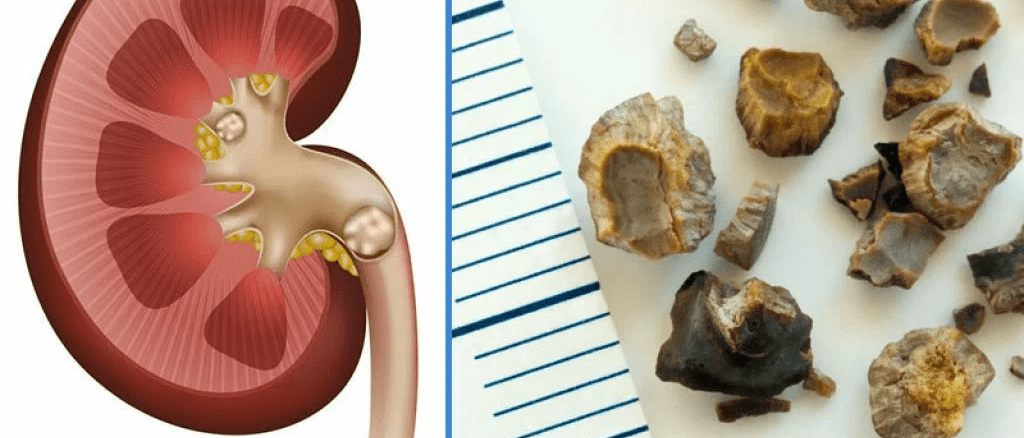
How Do Kidney Stones Pass?
What is a Kidney Stone?
A kidney stone is a condition that occurs when minerals and salts accumulate in the kidneys, forming a hard mass. Kidney stones can present with different symptoms depending on their size and may be expelled naturally or require intervention. Small stones often pass on their own, while larger stones may require medical intervention.
What Are the Symptoms of Kidney Stones?
Kidney stones usually cause symptoms when they block the urinary tract. The symptoms of kidney stones vary depending on the size, location, and movement of the stone. The most common symptoms include:
Severe Back and Flank Pain: The most prominent symptom of kidney stones is sharp and severe pain that occurs as the stone moves from the kidney toward the bladder.
Blood in Urine: Irritation caused by the stone moving through the urinary tract may result in blood in the urine.
Burning Sensation During Urination: When the stone reaches the urinary tract, a burning sensation may occur during urination.
Frequent Urination: As the stone approaches the bladder, the frequency of urination may increase.
Nausea and Vomiting: Severe pain may also be accompanied by nausea and vomiting.
Fever and Chills: If the kidney stone is accompanied by infection, symptoms such as fever and chills may also occur.
How Do Kidney Stones Pass?
The process of passing a kidney stone depends on the size and location of the stone. Small stones can often be expelled naturally at home, while larger stones may require medical intervention.
1. Hydration and Natural Passage
Small kidney stones can be passed naturally by drinking plenty of water and urinating regularly. Consuming at least 2-3 liters of water per day helps the stone pass easily through the urinary tract. Hydration dilutes the urine, preventing stone growth and the formation of new stones.
2. Physical Activity
Light exercise and walking can help the stone move through the urinary tract and be expelled from the body. Regular walks, in particular, can accelerate the movement of the stone.
Treatment Methods for Kidney Stones
For large kidney stones or stones causing pain or infection, various medical treatment methods can be used. Common treatment options include:
1. Medication
During the process of passing a kidney stone, the doctor may prescribe painkillers and muscle relaxants. These medications relieve the pain caused by the stone moving through the urinary tract and reduce muscle spasms, making it easier for the stone to pass.
2. Extracorporeal Shock Wave Lithotripsy (ESWL)
This method, known as ESWL, uses shock waves to break kidney stones into smaller pieces. The fragmented stones are then expelled through the urinary tract. This method is especially effective for medium-sized stones.
3. Ureteroscopy
Ureteroscopy is a minimally invasive surgical method used in the treatment of kidney stones. A thin tube (ureteroscope) is inserted through the urethra and bladder to locate the stone, and small stones are removed endoscopically. This method is preferred if the stone is large or cannot be broken with ESWL.
4. Percutaneous Nephrolithotomy (PNL)
This method, preferred for large stones, involves making a small incision in the lower back to access the kidney and surgically remove the stones. PNL is generally recommended for stones larger than 2 cm and has a high success rate.
Ways to Prevent Kidney Stone Formation
Since kidney stones can recur, it is important to make lifestyle and dietary changes to prevent stone formation. Here are some methods to help prevent kidney stones:
1. Drink Plenty of Water
Drinking enough water is the most effective way to prevent kidney stone formation. Drinking enough water to keep your urine light in color keeps your kidneys clean and prevents stone formation.
2. Reduce Sodium and Animal Protein Intake
Diets high in sodium and animal protein can increase the risk of kidney stones. Avoiding processed foods, excessive salt, and red meat can reduce the risk of stones.
3. Avoid Foods High in Oxalate
Foods rich in oxalate (such as spinach, beets, and chocolate) can contribute to kidney stone formation. Avoiding or limiting these foods can reduce the risk of stones.
4. Pay Attention to Calcium Levels
Low calcium levels can also cause kidney stones. Ensuring adequate calcium intake can help prevent the formation of calcium oxalate stones. However, it is important to use calcium supplements under medical supervision.
Lifestyle Recommendations During the Stone Passage Process
Some lifestyle changes you can make during the process of passing a kidney stone can help the stone pass more quickly and easily:
Drink Enough Water: Consuming at least 8-10 glasses of water per day helps the stone pass.
Eat a Healthy Diet: Follow a diet rich in fruits and vegetables and low in oxalate.
Engage in Physical Activity: Regular walks and light exercise can help the stone move through the urinary tract.
Avoid Stress: Stress can weaken the immune system and prolong the recovery process. Reduce stress with relaxing activities.
Taking Informed Steps in the Fight Against Kidney Stones
Kidney stones can be painful and uncomfortable, but drinking plenty of water, eating a balanced diet, and not neglecting regular doctor check-ups can help you cope with this problem. If you experience symptoms of kidney stones, it is important to consult a urology specialist.

Social Media